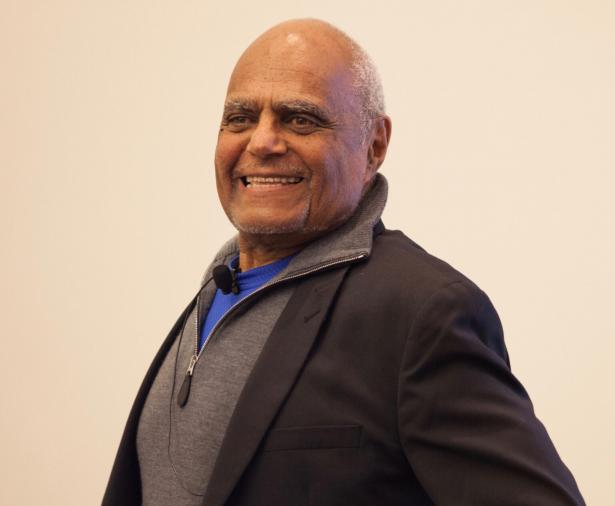Bob Moses, a renowned civil rights leader of the 1960s and founder of The Algebra Project, passed away on July 25. Moses was among the key activists working on voter education and registration in the south, and later in life devoted his efforts to helping low-income students and students of color achieve the mathematical skills necessary for postsecondary success. The Imprint is honored to publish this previously unpublished column, shared with us by his colleagues at The Algebra Project.
As a nation, we stand with bated breath — waiting for public schools to reopen and for “a return to normal” while ignoring that for many, normal is not only not good enough, it was also never really good.
Historical inequities and disparities in our public schools, as across all our public systems, operate along a constitutional fault line — an embedded caste system — that we need to find our way across. It is a fault line that is not only about race: class, identity and disabilities also block the path to equal educational opportunity for millions of students. Just like the right to vote in the 20th century, the lack of equal access to a quality education in the 21st century threatens to limit the future life choices for too many young people.
As a nation, the time has come to embrace quality education as the constitutional right that it should be, guaranteeing that all young people have full access to the social, economic and political opportunities that a democracy promises its people. But nothing will change for these children and youth if we continue to rely on federal education policies that emphasize rigid testing and punitive accountability structures, while paying little attention to ensuring that teachers are well supported, and that all students have access to high-quality structured opportunities to learn.
History keeps talking back to us, if only we would listen. Mandating improved achievement without providing the resources to accomplish it has failed to ensure equitable opportunities. This pattern of under-resourcing and underserving local schools in communities where there are children and families who most need public education to work, and work well, is not the return to the “normal” we need.
But rather than a piecemeal state-by-state approach, states need the federal government to take leadership and make up for past injustice. We need Congress to hear community voices and level the playing field for them by investing directly in those schools and districts most in need. Join me in asking President Biden, Secretary of Education Miguel Cardona, and your congressional leaders to stand with students being left behind, the teachers who work with them, and education advocates crying for justice for them to champion a federal civil rights bill for education, akin to the Civil Rights Act of 1957.

A student and Bob Moses in a Florida classroom. Photo courtesy of Sara Weinberg.
Like that historic bill, the 14th Amendment offers a constitutional platform for bold legislation to promote and protect education as a civil right, rectifying the structural inequities that have resulted in the existing disparities in our public schools, inequities that keep paying tragic dividends for children and their families on every front.
Since the civil rights movement, when I fought for the right to vote, it has been clear to me that limiting access to education is a subtext of efforts to suppress civil rights. In 1963, as field secretary with the Student Nonviolent Coordinating Committee (SNCC), I was registering sharecroppers in Mississippi to vote. A federal judge asked us why we were registering illiterates, the implication being that it did not make sense to register the uneducated, just as it did not make sense to teach those who were enslaved to read a generation earlier.
In the ’60s, voting was our organizing tool to demolish Jim Crow and achieve political impact. Since then, for me, it has been algebra. What’s math got to do with it? — you ask. Everything, I say.
Amidst the planet-wide transformation we are undergoing, from industrial to information-age economies and culture, math performance has emerged as a critical measure of equal opportunity. We can see the collateral damage of inequities in math education in the way that students are tracked into dead-end math courses and how that tracking is then used to deny them other opportunities because they cannot demonstrate the required math competencies on standardized tests. Simply look at how the failure to complete math requirements is strongly correlated with not completing either high school or post-secondary education.
Math also can be a collateral opportunity. By elevating math, alongside reading and writing, as an essential literacy, we can substitute the old pre-COVID-19 normal for a new one, where students get the space they need to operate as active problem solvers and claim their place inside information-age technologies and economies.
But, like happiness, education must be pursued. Students and teachers currently encapsulated in the inequities and disparities of the current public education system, like the sharecroppers before them, must be deeply involved in crafting the opportunity structures that will be needed to deliver 21st century math literacy. The nation needs a federal civil rights bill for education, one that opens up the funding and policies needed to assure full access for all students who are currently being left out of the critical literacies that will be required to thrive in the 21st century.
The late Bob Moses was a civil rights leader, SNCC Field Secretary and Founder, The Algebra Project, Inc.
The Imprint is an independent, nonprofit daily news publication dedicated to covering child welfare, juvenile justice, mental health and educational issues faced by vulnerable children and families.


Spread the word